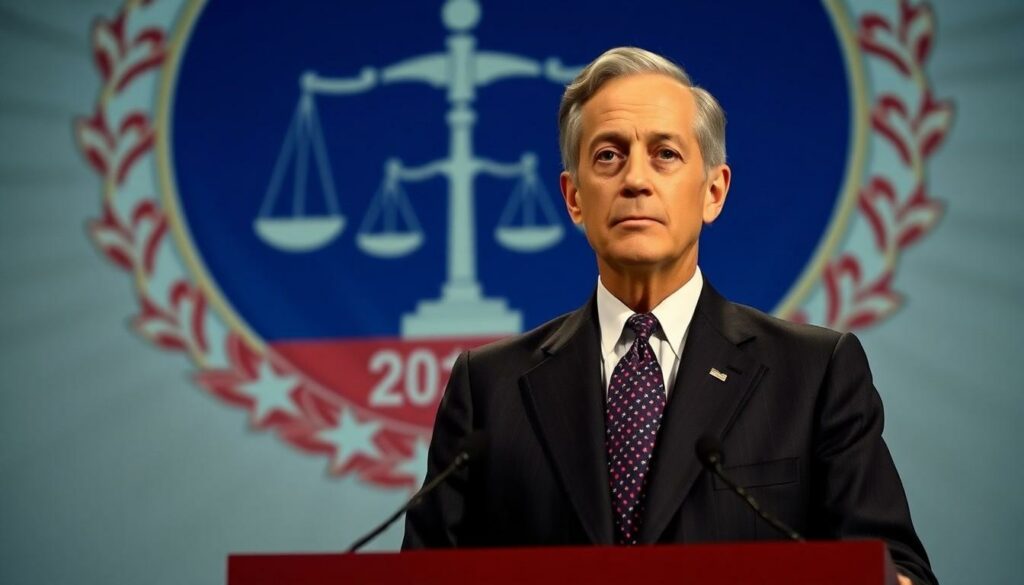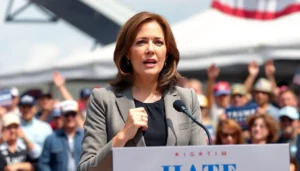In the early 20th century, the world was a stage for political drama, and moral diplomacy was the star of the show. This approach, championed by President Woodrow Wilson, aimed to promote human rights and democratic ideals across the globe. Forget about the old ways of gunboat diplomacy; this was all about winning hearts and minds—preferably without a side of cannon fire.
Moral diplomacy sought to elevate the United States as a beacon of hope, casting a spotlight on ethical leadership. It promised to support nations that shared American values while nudging those that didn’t toward a more virtuous path. But did it work? Was it a noble quest or just a diplomatic fairy tale? Buckle up as we dive into the intricacies of moral diplomacy and uncover its impact on international relations.
Table of Contents
ToggleOverview of Moral Diplomacy
Moral diplomacy emerged in the early 20th century under President Woodrow Wilson. This foreign policy approach sought to promote human rights and democratic values across the globe. Traditional strategies like gunboat diplomacy focused on military power; however, moral diplomacy emphasized ethical governance instead.
Countries aligned with American values received support in their endeavors to establish democracy. Collaboration with nations striving for reform became a hallmark of this strategy. For instance, Wilson’s administration backed the Mexican Revolution, advocating for democracy and social justice in Mexico.
Critics raised concerns regarding the effectiveness of moral diplomacy. Questions arose about whether the U.S. truly upheld its ideals while engaging with other nations. Some argued that the application of moral principles became inconsistent, particularly in cases where strategic interests were at stake.
Quantitative assessments indicate mixed outcomes regarding the long-term impact of moral diplomacy. Historical analyses demonstrate that while some countries improved human rights records, others experienced further complications as a result of U.S. involvement. Scholars continue to debate the authenticity of this diplomatic approach, probing its success in transforming international relations.
Ultimately, moral diplomacy positioned the United States as an advocate for ethical practices in foreign policy. The foundation laid during Wilson’s presidency influenced subsequent administrations and remains relevant in discussions of American foreign relations today.
Historical Context

Moral diplomacy emerged during a transformative period in American foreign policy. President Woodrow Wilson championed this approach, promoting ethical governance and supporting nations aligned with democratic ideals.
Political Climate in Early 20th Century
The early 20th century marked significant political changes. Industrialization and emerging global powers shifted the focus of U.S. foreign policy towards issues beyond borders. Nationalism surged in many countries, creating tensions that demanded international attention. Traditional military interventions gradually lost favor in the United States, leading to an increased desire for diplomacy anchored in morality and human rights. The turbulence of World War I fueled the urgency for reforming foreign relations, positioning moral diplomacy as a crucial response to global political dynamics.
Key Figures in Moral Diplomacy
Woodrow Wilson stood as the central figure in moral diplomacy. His vision for a world governed by democratic values inspired U.S. foreign policy. Secretary of State William Jennings Bryan also played an influential role, advocating for pacifism and ethical negotiations. Other important figures included advisors and diplomats who supported Wilson’s initiatives, attempting to align U.S. interests with moral imperatives. These individuals collectively influenced the direction of American foreign policy during this era, striving for a more principled approach to international relations.
Principles of Moral Diplomacy
Moral diplomacy is characterized by two core principles: the promotion of democracy and the advocacy for human rights. These concepts formed the foundation of an ethical foreign policy approach, shaping the United States’ role on the global stage.
Promotion of Democracy
Promotion of democracy remains a central tenet of moral diplomacy. This principle seeks to support nations transitioning to democratic governance while aligning with U.S. values. Woodrow Wilson’s administration recognized that fostering democratic systems could lead to stability and peace in regions experiencing turmoil. By backing movements like the Mexican Revolution, the United States aimed to facilitate change and encourage self-governance among nations. Such efforts showcased America’s commitment to nurturing democratic ideals beyond its borders.
Human Rights Advocacy
Human rights advocacy reflects another critical element of moral diplomacy. This focus underscores the importance of respecting individual freedoms and ensuring basic rights for all people. Advocacy efforts during Wilson’s presidency highlighted the moral obligation to protect vulnerable populations. The U.S. engaged with countries to promote standards of conduct consistent with humanitarian principles. A commitment to human rights served both as a reflection of American values and as a strategic tool to enhance the United States’ global reputation as a moral leader.
Impact of Moral Diplomacy
Moral diplomacy significantly influenced U.S. foreign relations in the early 20th century. This approach shaped various international interactions, leading to both successes and challenges.
Case Studies
Wilson’s administration exemplified moral diplomacy through specific actions in Mexico and Haiti. In Mexico, support for the Mexican Revolution illustrated a commitment to democratic ideals. By backing rebel leaders, the U.S. aimed to promote stability and social justice. In Haiti, military intervention occurred under the pretext of establishing order while also attempting to uphold democratic governance. Outcomes in both countries varied, showcasing moral diplomacy’s complexities. Scholars note that while some areas benefitted from American involvement, others experienced increased turmoil, raising questions about the genuine commitment to moral principles.
Additionally, the U.S. response to World War I highlighted moral diplomacy’s ramifications on global engagement. Advocating for peace and democracy, America positioned itself as a moral leader. However, the aftermath of the war led to debates about the sincerity of U.S. intentions, especially regarding nations that resisted American influence. Ultimately, these case studies reflect the diverse impacts of moral diplomacy on global politics, illustrating both its aspirational goals and inherent contradictions.
Critiques of Moral Diplomacy
Critiques of moral diplomacy highlight significant concerns regarding its implementation and overall effectiveness.
Effects on International Relations
Moral diplomacy reshaped relationships between the United States and other nations. It fostered a perception of the U.S. as a proponent of democracy and human rights. Some countries experienced positive transformations, aligning themselves with American values. However, partnerships often relied on selective engagement, raising questions about authenticity. Some governments receiving U.S. support maintained problematic human rights records, contradicting moral diplomacy’s ideals. These complexities impacted both international alliances and perceptions of U.S. credibility.
Shortcomings and Failures
Shortcomings in moral diplomacy became evident through various U.S. interventions. Military actions in Haiti aimed to stabilize the region but led to long-lasting political instability. Critics pointed to the dissonance between advocacy for democracy and the U.S. backing of authoritarian regimes when it suited strategic interests. Failures often stemmed from a lack of thorough understanding of local contexts and cultures, complicating the goals of moral diplomacy. Scholars debate the legitimacy of claiming moral superiority when American actions contradicted proclaimed values. These issues reveal the challenges inherent in applying moral principles to complex global situations.
Moral diplomacy represents a significant shift in U.S. foreign policy during the early 20th century. By prioritizing ethical governance and the promotion of democracy, it aimed to position the United States as a moral leader on the global stage. While it inspired many initiatives and reforms, the approach also faced criticism for its inconsistencies and selective application of moral principles. The complexities of implementing moral diplomacy highlighted the challenges of aligning ideals with real-world politics. Despite its shortcomings, the legacy of moral diplomacy continues to influence contemporary discussions on American foreign relations, emphasizing the importance of ethical considerations in international engagement.





